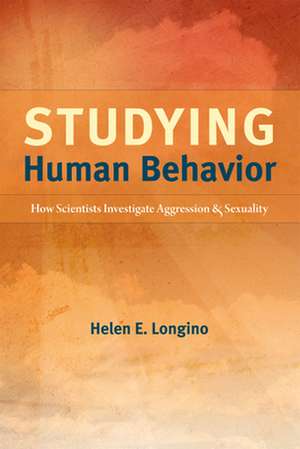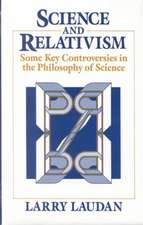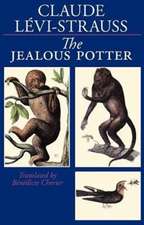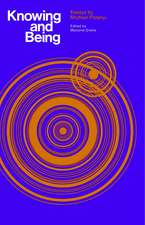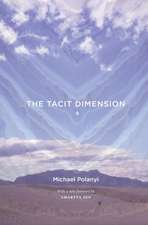Studying Human Behavior: How Scientists Investigate Aggression and Sexuality
Autor Helen E. Longinoen Limba Engleză Paperback – 18 ian 2013
In Studying Human Behavior, Helen E. Longino enters into the complexities of human behavioral research, a domain still dominated by the age-old debate of “nature versus nurture.” Rather than supporting one side or another or attempting to replace that dichotomy with a different framework for understanding behavior, Longino focuses on how scientists study it, specifically sexual behavior and aggression, and asks what can be known about human behavior through empirical investigation.
She dissects five approaches to the study of behavior—quantitative behavioral genetics, molecular behavior genetics, developmental psychology, neurophysiology and anatomy, and social/environmental methods—highlighting the underlying assumptions of these disciplines, as well as the different questions and mechanisms each addresses. She also analyzes efforts to integrate different approaches. Longino concludes that there is no single “correct” approach but that each contributes to our overall understanding of human behavior. In addition, Longino reflects on the reception and transmission of this behavioral research in scientific, social, clinical, and political spheres. A highly significant and innovative study that bears on crucial scientific questions, Studying Human Behavior will be essential reading not only for scientists and philosophers but also for science journalists and anyone interested in the engrossing challenges of understanding human behavior.
Preț: 248.26 lei
Nou
Puncte Express: 372
Preț estimativ în valută:
47.52€ • 51.63$ • 39.94£
47.52€ • 51.63$ • 39.94£
Carte tipărită la comandă
Livrare economică 21 aprilie-05 mai
Preluare comenzi: 021 569.72.76
Specificații
ISBN-13: 9780226492889
ISBN-10: 0226492885
Pagini: 256
Ilustrații: 6 halftones, 3 line drawings, 3 tables
Dimensiuni: 152 x 229 x 23 mm
Greutate: 0.4 kg
Editura: University of Chicago Press
Colecția University of Chicago Press
ISBN-10: 0226492885
Pagini: 256
Ilustrații: 6 halftones, 3 line drawings, 3 tables
Dimensiuni: 152 x 229 x 23 mm
Greutate: 0.4 kg
Editura: University of Chicago Press
Colecția University of Chicago Press
Notă biografică
Helen E. Longino is chair and the Clarence Irving Lewis Professor in the Department of Philosophy at Stanford University. She is the author of Science as Social Knowledge and The Fate of Knowledge.
Cuprins
Acknowledgments
Chapter 1 Introduction
Part 1 Approaches to Understanding Human Behavior
Chapter 2 Quantitative Behavioral Genetics
Chapter 3 Social-Environmental Approaches
Chapter 4 Molecular Behavioral Genetics
Chapter 5 Neurobiological Approaches
Chapter 6 Integrative Approaches
Chapter 7 Scope and Limits of the Approaches
Part 2 Epistemological, Ontological, and Social Analysis
Chapter 8 What We Could Know
Chapter 9 Defining Behavior
Chapter 10 The Social Life of Behavioral Science
Chapter 11 A Brief Conclusion
Appendix
Works Cited
Index
Recenzii
“[A] fascinating book. . . . Longino has clearly articulated the methodological plurality of research on human behavior.”
“In her groundbreaking book . . . Longino looks closely at a variety of scientific approaches to the study of human aggression and sexuality to argue that there is no one right way to divide nature from nurture within the scientific approaches to the study of behavior, and that the nature/nurture dichotomy reinforces and reflects an undue emphasis on explanations that focus on the dispositions of individuals rather than those that look at patterns of frequency and distribution of behavior within populations.”
“[An] important contribution to the philosophy of the science(s) of human behavior. . . . [T]his is a must read for philosophers of science and behavioral scientists. . . . Recommended.”
"Worth reading for anyone interested in feminist philosophy of science, philosophy of biology, or social epistemology. Longino demonstrates an impressive and comprehensive engagement with the relevant science, a careful and thorough use of that scientific literature to advance an account of the pluralism and partiality of knowledge claims based in different scientific disciplines, and, finally, an approach to the sciences of behavior that has important feminist and liberatory implications. We hope this book makes it to your shelves and stimulates further feminist work in the scientific terrain Longino has so rigorously charted for us."
"Longino has done the philosophy of science a service by providing a nonpartisan assessment of the many scientific approaches that study the nature and nurture of human behavior. She convincingly shows that we need not pick winners and losers among the approaches, but rather can think constructively about the relationship between those approaches."
“Overall, this book offers a useful overview of a number of scientific approaches to investigating human behavior and a thorough examination of the existing concerns with each approach. Longino’s treatment of the different ways these approaches parse the causal space is illuminating for those interested in the sciences of human behavior, and also as a case study of how multiple approaches address a phenomenon in very different ways that are not easily reconcilable.”
“Studying Human Behavior offers a groundbreaking account of the sciences of human behavior. Longino’s detailed analysis of how each science investigates and explains behaviors associated with aggression and sexual orientation shows that each has more limitations than champions acknowledge and each has more power than critics grant. At a time when science is being dismissed by some and elevated to a religion by others, this book provides a model of how empirical knowledge should be examined and understood.”
“Longino presents many insights about different general methods, assumptions, research goals, and the importance of definitions in researching behavior. I know of no other book that covers such diverse approaches.”
“Rather than taking sides in the nature/nurture debates, Longino floats above them, beautifully illustrating what philosophers do best, laying out the complexity and interrelationships among different research approaches to human aggression and sexuality. For example, she examines the ways that various biological and social fields describe behaviors, illuminating how moral values and folk psychology get infused into the deepest research concepts from the start. An extremely thoughtful, careful, and fascinating book, accessible to all those interested in the foundations of behavior.”
"Helen Longino’s Studying Human Behavior: How Scientists Investigate Aggression and Sexuality demonstrates the relevance and validity of scientific pluralism as a mode of understanding scientific study of human behavior. . . . The result is a fascinating yet easy read, reporting empirical research on how various sciences study and explain human behavior. Throughout, the book is well written and well thought. Based on exhaustive observation and careful analysis of scientific practices and discourses, it offers insights on five distinct scientific approaches to the study of sexuality and aggression."
